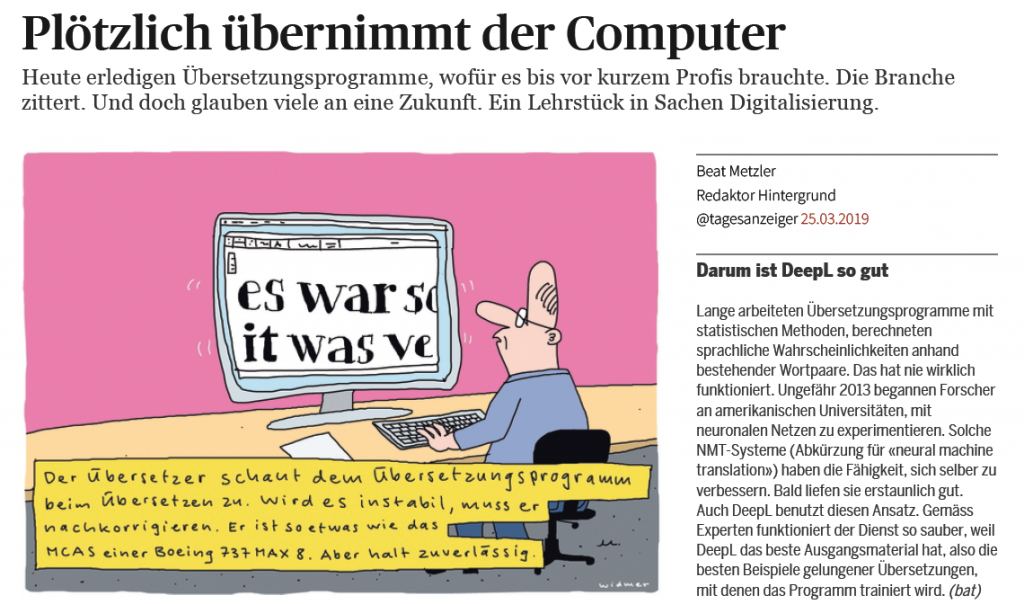Much is being said about machine translation in professional and lay circles alike these days. And rightly so: if we compare the machine translation technologies of just ten years ago to the neural machine translation (NMT) systems of today, the improvements in quality, linguistic fluency and scope are quite simply revolutionary. And so are the opportunities they present to professional translators.
By Elana Summers, lecturer and translator at IUED Institute of Translation and Interpreting
For me as a professional translator, DeepL has become a key tool in my browser’s bookmarks bar alongside my other favourite resources, such as bilingual or monolingual dictionaries. Knowing how and when (and especially when not!) to use it has made me a better translator, honing my skills to detect hard-to-spot errors or allowing me to focus creatively on the linguistic and cultural shifts needed to ensure that the translation meets the needs and expectations of the target audience.
Managing massive translation projects
NMT has also made me more productive, and I am not alone: according to a recent article in the Tages-Anzeiger, the translation industry is experiencing an outright boom. As Florian Faes, ZHAW graduate and co-founder of the translation industry news site Slator, points out, this is probably because companies are using the money saved with NMT to have more texts translated. It means that we can likely expect more work post-editing machine output, coordinating massive translation projects across regions and language pairs or advising companies on how to integrate NMT into their communication processes.
Here at IUED, we are not only aware of these changes to our profession – we are already training our students for them. We have long been introducing our students to machine translation, explaining its advantages as well as its limitations. Our BA and MA programmes offer entire courses in translation technology, including pre- and post-editing of machine translation, as well as a courses in translation consulting and management. Thanks to our continuing education programmes, similar products are also available to language professionals beyond the ZHAW.
Anticipating trends as a success factor
The reality is that digitalisation is coming at us hard and fast in the communication industry: it is changing existing jobs, creating new ones and opening up entirely new markets. At IUED, we are embracing both the challenges and opportunities that come with digitalisation. As language and communication experts, it is in our DNA to anticipate new trends and identify the jobs to come. By integrating our research into our teaching practices, we are training our students to be both reflective practitioners and agile thinkers, providing them with the skills and competences so they can not only adapt to any situation they find themselves in, but in fact drive the changes to come.

